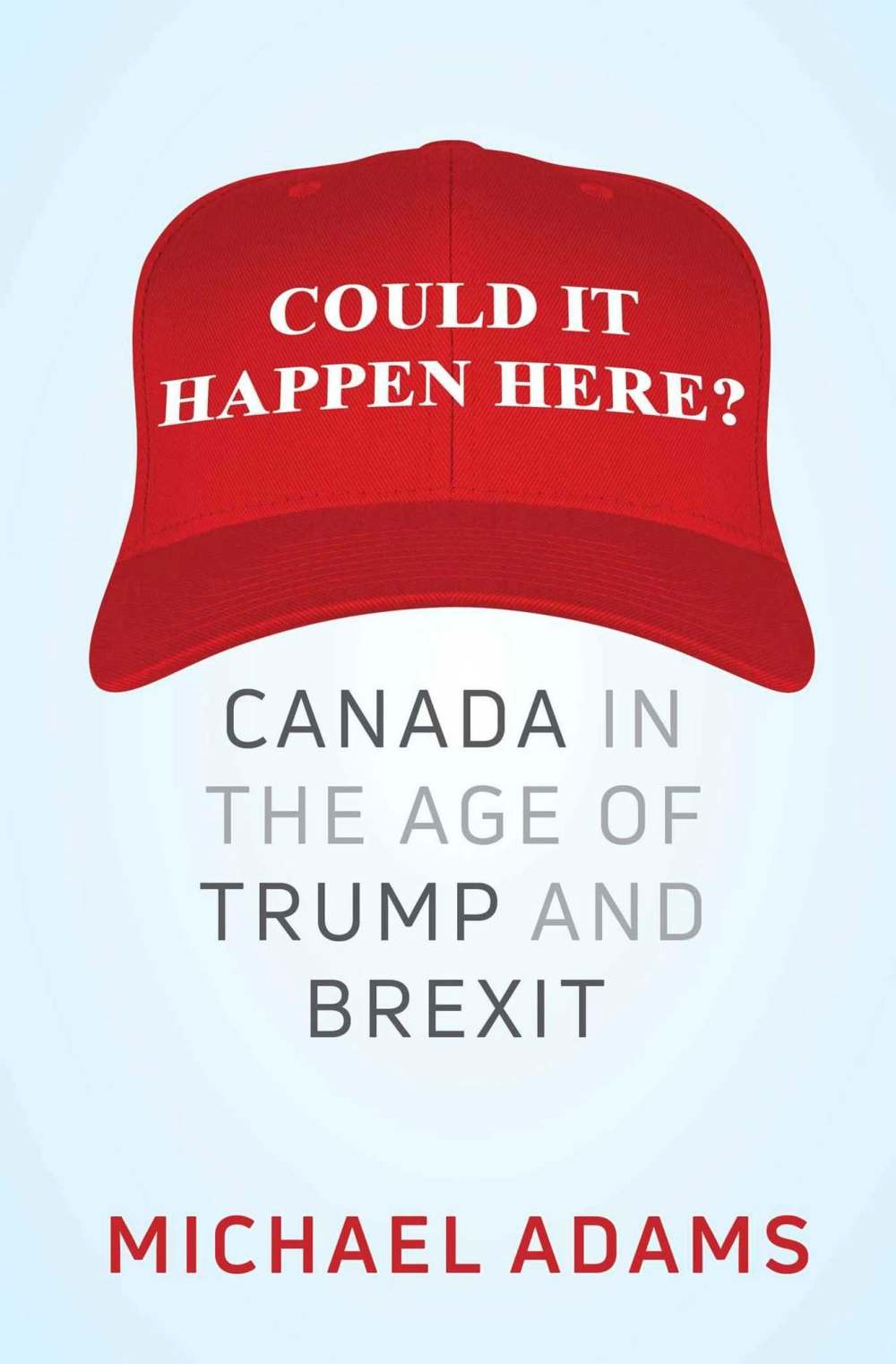Virtues and values
Pollster weighs probability of political sea change in Canada
Advertisement
Read this article for free:
or
Already have an account? Log in here »
To continue reading, please subscribe:
Monthly Digital Subscription
$0 for the first 4 weeks*
- Enjoy unlimited reading on winnipegfreepress.com
- Read the E-Edition, our digital replica newspaper
- Access News Break, our award-winning app
- Play interactive puzzles
*No charge for 4 weeks then price increases to the regular rate of $19.00 plus GST every four weeks. Offer available to new and qualified returning subscribers only. Cancel any time.
Monthly Digital Subscription
$4.75/week*
- Enjoy unlimited reading on winnipegfreepress.com
- Read the E-Edition, our digital replica newspaper
- Access News Break, our award-winning app
- Play interactive puzzles
*Billed as $19 plus GST every four weeks. Cancel any time.
To continue reading, please subscribe:
Add Free Press access to your Brandon Sun subscription for only an additional
$1 for the first 4 weeks*
*Your next subscription payment will increase by $1.00 and you will be charged $16.99 plus GST for four weeks. After four weeks, your payment will increase to $23.99 plus GST every four weeks.
Read unlimited articles for free today:
or
Already have an account? Log in here »
Hey there, time traveller!
This article was published 21/10/2017 (2974 days ago), so information in it may no longer be current.
Following Donald Trump’s election in November 2016, major book retailers were reportedly overwhelmed by demand for Sinclair Lewis’s 1935 novel It Can’t Happen Here. Lewis’s novel details the rise of populist demagogue Berzelius (Buzz) Windrip, who wins the American presidency with nativist attacks on people of colour, immigrants and the media before turning openly to fascism. To many readers, the comparisons were obvious.
With his new book Could It Happen Here?, Canadian social scientist Michael Adams evokes Lewis’s novel in an effort to determine the potential for Canadians to be drawn in significant numbers to the sort of nativist, xenophobic authoritarianism that seems to be spreading around the world, fuelling Trumpism and Britons’ rejection of the European Union.
Weighing in at a slim 192 pages — and pointedly bound in the same shade of red as the ubiquitous Trump campaign hat featured on its cover — Could It Happen Here? is not only another of Adams’ cogent investigations into Canada’s national mood, but an excellent primer on recent turmoil around the world, including the Syrian refugee crisis and the resurgence of far-right populism in Europe.

The award-winning author of six previous books on the respective social characters of Canadians and Americans — including Sex in the Snow: The Surprising Revolution in Canadian Values (1997) and Fire and Ice: The United States, Canada and the Myth of Converging Values (2003), Adams is also the president of the Environics Institute for Survey Research and earlier this year became a recipient of the Order of Canada.
Adams’ particular gift is his ability to translate otherwise opaque and dry survey and polling data into an eminently readable argument. This latest analysis, however, also has a palpable sense of urgency: he claims to have “rushed into the office” to begin work on it the morning after Trump’s win to compare recent survey results of 8,000 Americans and 4,000 Canadians.
The results are fascinating and — for the moment, at least — reassuring. On every measure, he finds that Canadians appear to be embracing racial, ethnic, religious, gender and sexual diversity more successfully than most of the rest of the world. Canada’s political and social cultures offer poor soil for reactionary, xenophobic nationalism.
Not that some of our politicians haven’t tried: Adams recalls the Harper government’s efforts to ban the niqab in citizenship ceremonies and institute a “barbaric cultural practices” tip line, both of which proved disastrous for its fortunes in the 2015 election, while Kellie Leitch’s obsession with testing for vaguely defined “Canadian values” similarly doomed her Tory leadership campaign. Torontonians, for their part, had a brief fling with the populism of Rob Ford before electing the more level-headed John Tory to replace him as mayor.

Adams draws on the work of an American pollster and political science scholar, Matthew MacWilliams, who uncovered a surprising predictor of political support for Trump: patriarchy. When asked if the “father of the family must be master of his own house,” those in the Deep South — a region that voted heavily for Trump — answered overwhelmingly in the affirmative (69 per cent), suggesting a strong preference for authoritarian leaders. While Albertans scored the highest among Canadians on this question, it was still at a significantly lower percentage (26 per cent) than the most progressive U.S. region, New England (42 per cent). Even here we stand apart: this sort of regional polarization is also absent north of the 49th parallel.
At the same time, however, Adams eschews a sense of Canadian exceptionalism. He points to such injustices as the persistent poverty experienced by so many Indigenous people as well as stressing that our country’s ability to avoid electing right-wing and racist leaders is not owed to some innate quality in our collective character, but rather to a combination of policy decisions, parliamentary institutions and democratic practices that, so far, favour negotiation and compromise rather than hyper-partisanship.
All these qualities must be continually nurtured rather than taken for granted. Could it Happen Here? is an essential guide not so much to who we are now as Canadians, but instead to what the rest of world will need us to be in an increasingly fractured and intolerant future.
Michael Dudley is a librarian at the University of Winnipeg.


